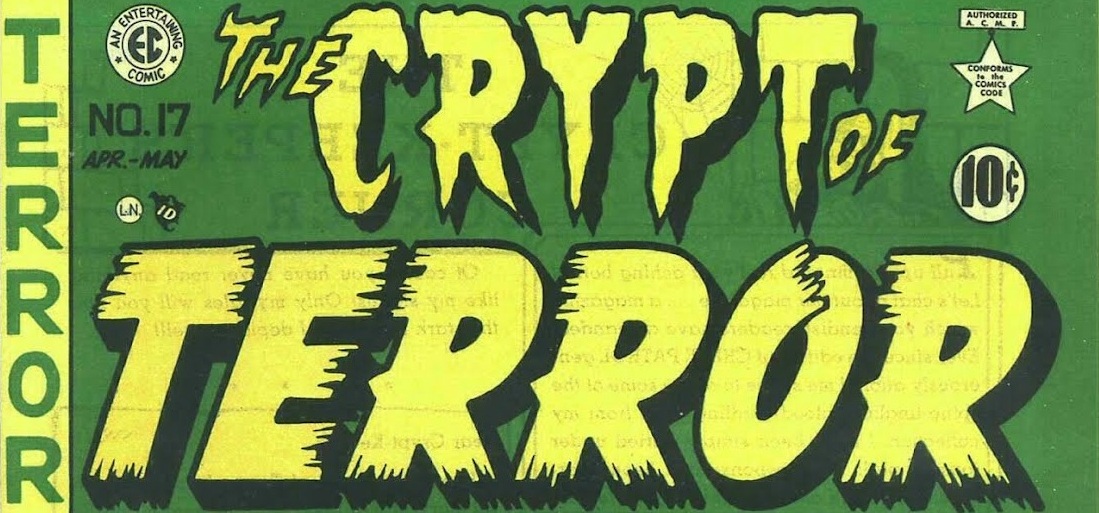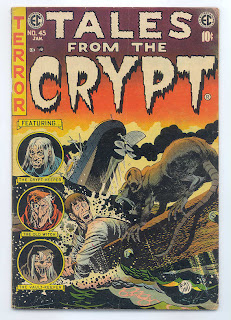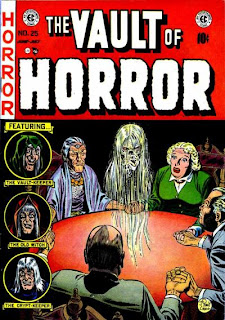Episode 9: Cutting Cards
Original Airdate: April 21, 1990
Written By: Walter Hill, Mae Woods
Directed By: Walter Hill
Starring: Lance Henriksen, Kevin Tighe, Roy Brocksmith
Gambling used to be something frowned upon to polite society for its sleazy nature and often diabolical hold on the addicted, malfunctioned members of the community that once were called family. Las Vegas was a crater hidden in a radioactive wasteland that mere mortals without mob ties dare not invade. Atlantic City; merely an eyesore curtained only by greater sights across the Hudson and on the shores of the bright boardwalks. By today's standards, gambling transcends black-balling as an art and sport form, finding national television coverage in various formats as well as trendy infomercials that are as educational as they are enlightening.
When one gambles on slots, cards, or in a mathematically charged game of chance, they're typically leaving the odds in favor of the house and putting their savings on the line for a string of luck. But when one gambles against a fellow gambler, they're engaging in a battle of wits and words that can leave a man battered, bloodied, and humbled. For our two leads in the desperately greedy "Cutting Cards," they'll be leaving nothing to chance: except life and limb.
"I don't need no intro to Sam Forney." -Reno Crevice
Reno Crevice (Lance Henriksen) has stumbled back into town looking for a little good luck to send him a long way. Crevice, a noted gambler and avid poker player, is greeted warmly by the staff at the bar but wants to make his way back to the dealer's room for a shot at Sam Forney (Kevin Tighe), a reported big shot who no man is daring enough to face heads up. No man, of course, except for Crevice, who claims to have a long history with Forney that includes several victories and more than a few bitter battle scars.
As Reno heads to the back table, a feeling of uneasiness is cast over the club with he and Forney exchanging barbs about their rough and sorted past. Forney attempts to call Reno out on his current "down-on-his-luck" situation, but Crevice bluffs with a large sum of money that Forney's greed, and manhood simply can't resist. The first game is dice, and as simple as it may seem to leave the fate of this bet up to chance, it is only the torrid beginning.
"They don't come around here anymore. I cleaned them all out. I guess they weren't used to my kind of competition." -Sam Forney
"Cutting Cards" found its way to the screen thanks mostly to executive producer, writer, and director Walter Hill, who absolutely adored the idea of two men waging war in a most trivial manner. Hill, who previously worked on the season one episode "The Man Who Was Death," brought his brand of simple storytelling back to the series with a slow, tension-filled ride that stars horror favorite Lance Henriksen as well.Henriksen and Hill worked together quite often, leaving Hill's work with a great feeling of impending doom (especially if the character in question is Henriksen's).
Henriksen plays wonderfully opposite to Tighe's role as Sam Forney, and even though the two men are polar opposites in regards to how they got their reputations, they each mirror each other perfectly, making rooting for one over the other a near impossibility. In this kind of high-risk game, Writer/Director Hill tries to purvey that very message by implying that these two are simply too evil, even towards each other, to ever be trustworthy or heroic. Seeing them get what they deserve in between ounces of amazing dialogue is only fitting.
"You wanna fuck with me? You wanna duel? Alright, let's do it. Russian Roulette." -Reno Crevice
After the roll of the dice proves inconclusive, Reno loses his cool and calls for a .44-caliber pistol to settle the score. What started as a "loser leaves town" match has turned into all-out madness as Sam and Reno reconvene in the streets in an effort to blow each other away. As the tension mounts, they each take turns pulling the trigger against their own temple and brow-beating the other as only a nemesis could. This game of chicken boils over into unspeakable rage when only one shot remains with no suicide apparent.
Reno, last to act, shows how much of a man he is by pulling the trigger and revealing the final shot to be a dud. Both Sam and Reno are terribly unsatisfied, accusing each other of cheating in a game that is otherwise unbreakable. When a final, conclusive game is called for, Sam suggests the aptly-titled "Chop Poker." For those unfamiliar with the concept, it doesn't take long to understand. A dealer menacingly shuffles the deck over a meat cleaver with the intention of not only dealing out the cards for each and every torturous hand, but also the pain to the loser of such a dastardly game.
"No chips, no pot, just play the hand and see where it falls." -Sam Forney
The game is a simple 5-card draw poker, but with one exception: the loser of each hand loses, at minimum, a finger from the blade of the cleaver. The first to quit, be it from pain or fear, will be the loser and will never be allowed to show his face again. Things start slowly, with Reno taking the upper hand (mind the pun) after showing a set of Queens to best Sam's two pair (tens and eights). With no hesitation nor remorse, Reno takes off Sam's right pinky finger. On the second hand, Reno continues his winning ways with a Full House (Aces over Sevens).
By the third hand, Reno believes himself to be in full control until he's bested on a pair of tens by Sam's pair of Jacks. And it goes on like this. Sickly and slowly, Sam and Reno continue to destroy each other as neither are willing to relent to the other. In the final moments, we cut to the two facing off in a different sort of game: checkers. They're playing in what appears to be a hospital, each with gowns on and lacking several appendages. And unsurprisingly, they're still arguing over who stands tall, even without legs.
"I told you, I've always been a lucky kind of guy." -Reno Crevice
Parallels to the EC Source Material:
"Cutting Cards" was originally published in Tales from the Crypt #32. In this version, the names have been changed to Gus Forney and Lou Crebis, but the basics remain the same. Gus and Lou jump straight into the game of death when they play a game of high card (instead of dice), yet both come up with Aces. When the two change the game to Russian Roulette, the same outcome befalls the characters as it did in the episode.
In a slight change, they alternated who won hands, whereas the first two in the episode belonged to Reno (named Lou in the comic). At the end of the day, however, both ended up in the same place as was originally intended, even maintaining a clever joke about passing the chewing gum for one last zing.
Horror Alumni Roll Call:
-Lance Henriksen (Reno Crevice) is a popular horror and science fiction actor whose credits include Mansion of the Doomed, Damien: Omen II, Close Encounters of the Third Kind, The Visitor, Piranha Part Two: The Spawning and anthology film Nightmares. Of course, all of that was before his biggest breakouts in The Terminator, Aliens, Near Dark, and Pumpkinhead. In the 90's, Henriksen appeared in Alien 3, The Pit and the Pendulum, Man's Best Friend, and an episode of The X-Files. As if all that isn't enough, he continued to make waves, appearing in Scream 3, The Mangler 2, The Invitation, Madhouse, Alien vs. Predator, Hellraiser: Hellworld, and two more Pumpkinhead films. There's about a dozen films in there that weren't name, so you've got a lot of catching up to do.
-Kevin Tighe (Sam Forney) managed to avoid horror for most of his career until participating in an episode of The Outer Limits and the Stephen King miniseries Rose Red. In 2009, he returned to the genre with an appearance with the horror all-star cast of My Bloody Valentine 3D.
-Roy Brocksmith (Bartender) is making his third appearance in nine Tales episodes. In fact, by once again playing the bartender, one could infer that this story and "The Man Who Was Death" take place in the same town during the same time period.
-Diane Cary (Hostess) appeared earlier in her career in V and V: The Final Battle, keeping with television until a recurring role in Forever Knight.
-Allan Graf (Driver) made most of his keep as a stunt actor throughout his career, notably appearing in Poltergeist, RoboCop, Total Recall, and a recent episode of Supernatural.
-Alisa Christensen (Blonde Woman) may have had a very brief appearance in this episode, but it's worth noting that she also made acting spots in several B-movie projects, notably Troma films Terror Firmer and Citizen Toxie: The Toxic Avenger IV.
-Walter Hill (Director, Writer) worked with Lance Henriksen numerous times in his career, not just this episode. He helped write Aliens, Alien 3, and is working currently on the sequel to Prometheus. As previously mentioned, Hill was also an advocate of action pictures, directing both installments of 48 Hours and The Warriors.
-Mae Woods (Writer) is more of an assistant to Walter Hill, but does have three screen credits in writing, all for Tales from the Crypt.
Number of puns delivered by the Cryptkeeper: Four (though his love of alliteration is at an all-time high).
In Summation: "Cutting Cards" clocks in at just over 20 minutes, making it easily the shortest episode in the Tales from the Crypt production run. But the perfection of this episode comes in the very succinctness of such short breaths. Who knows where our two lead protagonists (or is it antagonists) would be if they hadn't reached to such depths so quickly? You don't need to look too far to realize how deceptive, greedy, and deadly the game they continue to play will become. Even without limbs, they prove to be a continued danger to one another and society, so the briefer the experience around them, the better life is apart from them. You almost get the sinking feeling that this Cold War will never end, continuing with each generation of hard-headed kin like some kind of macabre Montague vs. Capulet street fight. The gun doesn't have to be loaded in only one chamber. You could easily place a bullet in all six to see what the end result for two addicted gamblers will be.
-Benjamin M. Benya


























